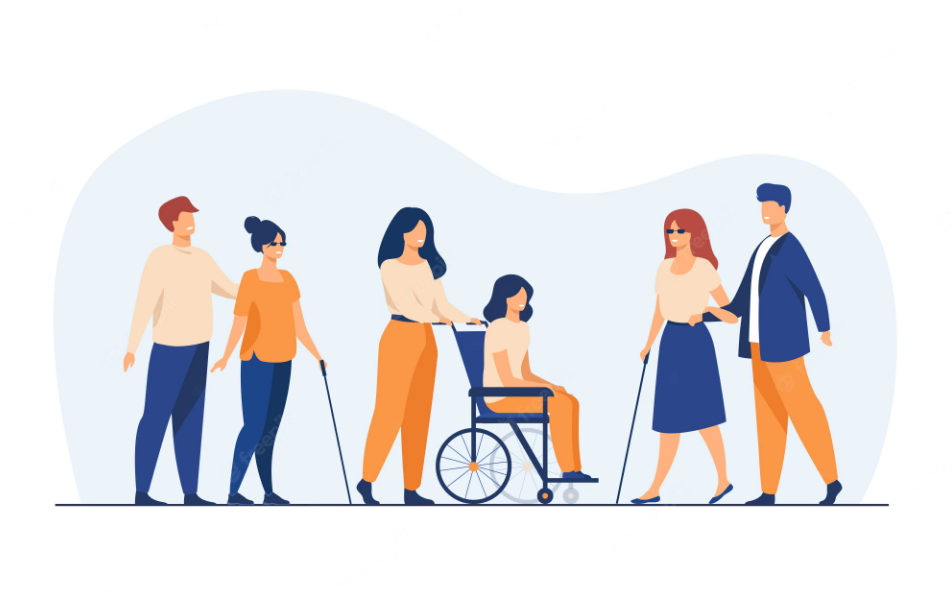When it comes to taking care of disable people, there are a few things you have to keep in mind. One of these is self-care. Self-care is the ability to take good care of yourself and prevent health problems that can arise from neglect or negligence. Another is social determinants of health. These include accessing information, social support, family and psychiatric medication. Searching for best disability service in melbourne?
Here are few points to take care of disabled people:
Family
It is important that family members take care of disabled loved ones. This could include learning about the health system, reducing stress and getting support.
Caregivers have many resources, including support groups and health care professionals. A support group can help you overcome isolation, connect with other caregivers, share information about local resources, and provide information about events and other resources in your area.
It’s also a good idea to get a handle on federal laws and other laws relevant to your particular situation. For instance, you might want to file a joint tax return with a disabled individual. You can also apply for Medicaid.
Social determinants of Health
Social determinants of Health are conditions that have an impact on the quality of life. They include birth, education, employment, income, and health-care access. These factors can influence health outcomes in both positive and negative ways.
Social determinants play an important role in determining one’s health, with over 80 percent of our health being affected by environmental and behavioral factors. It is difficult to identify and address these social determinants in clinical practice, despite their prevalence.
Self-care
Self-care for disabled people is a global public health issue. Around 14% of the world’s population are over 60 years old, and an increasing number of seniors are unable meet their daily needs. This has a significant impact on healthcare systems in countries around the globe. This problem has been addressed by the Chinese government in a number of ways.
Self-care skills are a collection of cognitive and practical abilities that can be used to improve physical control, motor skills and sequencing. They can also improve resilience and well-being. People with developmental disabilities should focus on self-care skills to maximize their quality of life.
Respite care
Respite care is an important aspect of taking care for a disabled individual. Not only does it provide a break for the primary caregiver, but it also helps the family.
Giving up caregiving can allow caregivers to concentrate on other duties. This can prevent the caregiver from becoming burned out and allow the caregiver to get a good night’s sleep.
Respite can be provided at home, in a nursing home, or through a program at an adult day center. Respite services vary in cost and length of stay.
Accessible communication
Accessible communication for disabled people is an important aspect of good communication. It allows people with disabilities the opportunity to participate on an equal basis as their non-disabled peers.
This can be achieved through accessible online communication. Accessible websites may include features like EasyRead which makes it easier to read and allows you to change the background. Also, consider other formats such as braille or large print.
Effective communication strategies include providing clear and concise information that is targeted at a specific audience. This is a common way libraries communicate with their users. Libraries often offer printed materials and social media for different audiences.
Psychiatric medication
There are a number of behavioural disorders which can be treated with psychiatric medication. These include schizophrenia, attention deficit hyperactivity disorder, psychosis, and others. Psychotropic medications are often prescribed to individuals with learning or developmental disabilities.
People with mental retardation or developmental disabilities often need antipsychotic medication to treat their behavioural problems. These drugs are not necessarily effective in treating aggressive or disruptive behaviour, however.
Numerous studies have also shown that these medicines are no different from placebos. Moreover, they can have serious and sometimes fatal side effects.
Stigma
Stigma is a form of discrimination that may be based on ethnicity, gender, physical disability or mental illness. Stigma is a barrier to social integration because it can make people afraid of seeking care.
Research has shown that people with mental and physical illness are more likely to be associated with them. The current study explored the impact of different types of disabilities and relationships with these individuals.
Participants in this research were surveyed online via a survey platform. They were given an instrument that measured the perception of family stigma. FAMSI (Family Affiliates Stigma Instrument) was an additional measure that assessed internalization of family stigma. Both measures were scored by six experts in IDD services. Respondents were asked to complete a five-point Likert scale.




One thought on “Tips for Taking Care of Disabled People”
Comments are closed.